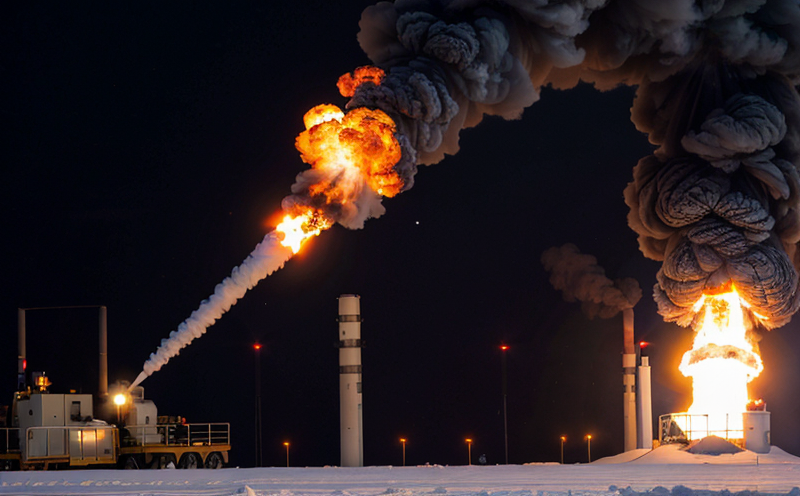Cross-Sensitivity of Methane Sensors to Other Combustible Gases
The Hidden Dangers of Methane Sensors Understanding Cross-Sensitivity to Other Combustible Gases
As industries continue to evolve and become more sophisticated, the need for accurate and reliable gas detection has never been more pressing. Methane sensors are a crucial component in many industrial settings, used to monitor and control levels of this potent greenhouse gas. However, a critical issue that can compromise their effectiveness is cross-sensitivity to other combustible gases. In this article, we will delve into the world of methane sensor cross-sensitivity, exploring its implications for businesses and highlighting the importance of specialized laboratory services in mitigating these risks.
What is Cross-Sensitivity of Methane Sensors to Other Combustible Gases?
Cross-sensitivity occurs when a gas sensor responds inaccurately or erratically to multiple gases present in an environment. In the context of methane sensors, this means that even if the primary concern is methane detection, other combustible gases like hydrogen, propane, or butane can interfere with the sensors accuracy. This phenomenon can lead to false alarms, delayed responses, or even missed detections all of which can have significant consequences for safety, productivity, and bottom-line profitability.
Why Cross-Sensitivity Matters
For businesses operating in industries such as oil and gas extraction, refining, transportation, and storage, accurate methane detection is paramount. Even a single mistake can result in catastrophic outcomes, including
Inadequate Safety Protocols Inaccurate sensor readings can lead to inadequate safety measures, putting personnel at risk of explosions or fires.
Equipment Damage Incorrect readings can cause premature equipment failure or unnecessary shutdowns, resulting in costly repairs and downtime.
Environmental Impact Unchecked methane emissions contribute significantly to climate change and air pollution. Cross-sensitivity can exacerbate these issues by masking actual gas levels.
The Benefits of Specialized Laboratory Services
At Eurolab, we provide a comprehensive laboratory service specifically designed to address the issue of cross-sensitivity in methane sensors. Our expert technicians employ cutting-edge technology and rigorous testing protocols to
Identify Interference Gases Our sophisticated instruments can detect other combustible gases present in your sensors environment.
Calibrate Sensors for Accuracy We recalibrate your methane sensors to minimize cross-sensitivity, ensuring accurate readings even when multiple gases are present.
Verify Sensor Performance Thorough testing and validation of your sensors performance under various conditions.
Key Benefits of Eurolabs Cross-Sensitivity Services
Enhanced Safety Accurate gas detection reduces the risk of accidents, protecting personnel and equipment.
Increased Efficiency Correctly calibrated sensors minimize unnecessary shutdowns, reducing downtime and costs.
Compliance with Regulations By ensuring accurate readings, businesses can meet or exceed regulatory requirements for methane detection.
QA Section
Q What causes cross-sensitivity in methane sensors?
A Cross-sensitivity is caused by the interference of other combustible gases on the sensors accuracy. This can be due to various factors such as sensor design, calibration, or environmental conditions.
Q How can I identify if my methane sensor has cross-sensitivity issues?
A Signs of cross-sensitivity may include inaccurate readings, erratic responses, or frequent false alarms. Consult with Eurolab experts for a thorough assessment and testing.
Q What are the risks associated with ignoring cross-sensitivity in methane sensors?
A Ignoring cross-sensitivity can lead to accidents, equipment damage, environmental harm, and financial losses due to inadequate safety measures and unnecessary shutdowns.
Q Can I perform cross-sensitivity testing in-house or do I need a specialized laboratory like Eurolab?
A While some basic testing may be possible in-house, only a dedicated laboratory like Eurolab can provide comprehensive and accurate results using state-of-the-art equipment and expert technicians.
By understanding the risks associated with cross-sensitivity in methane sensors and investing in specialized laboratory services, businesses can safeguard their operations, protect their personnel, and contribute to a safer environment. At Eurolab, we are committed to helping you overcome these challenges and ensure reliable gas detection for your industrys needs.




